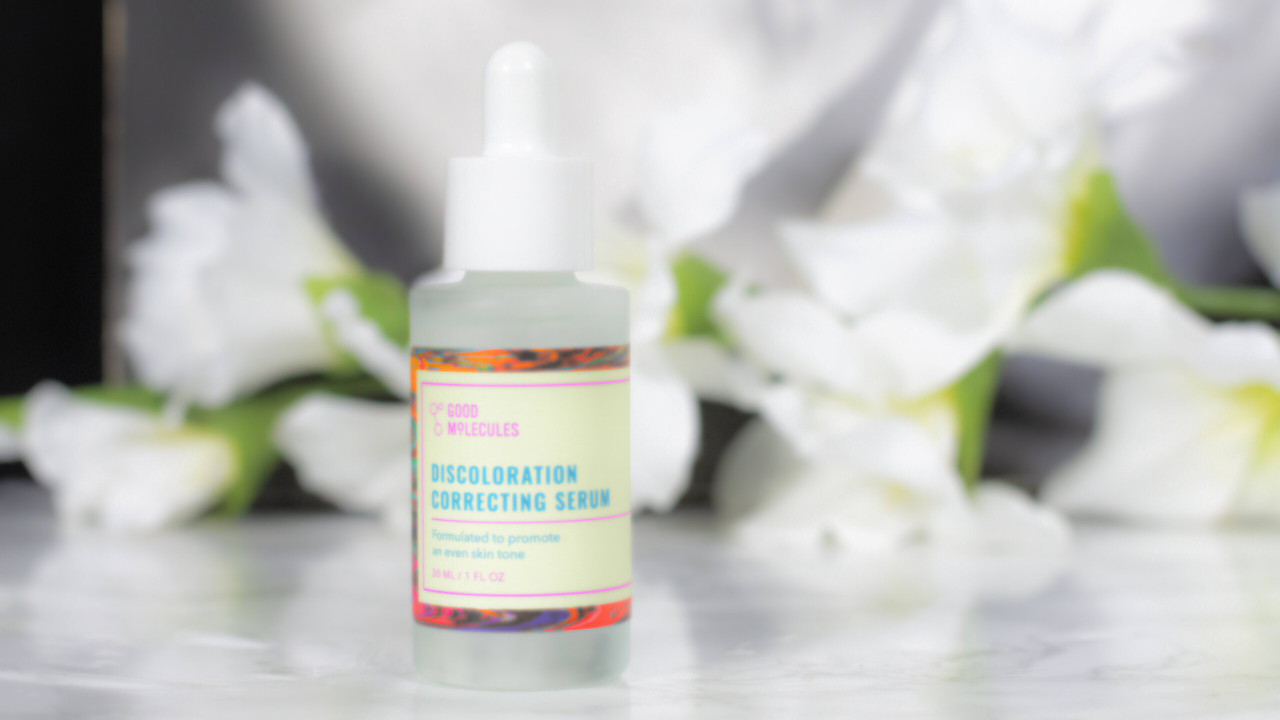Discoloration Serums
In our relentless pursuit of healthy and radiant skin, skincare enthusiasts continually explore innovative products and routines. One such groundbreaking addition to the skincare arsenal is the Discoloration Serum. These serums have gained immense popularity due to their ability to combat various skin concerns related to hyperpigmentation, dark spots, and uneven skin tone. In this comprehensive article, we will delve into the world of Discoloration Serums, uncovering their benefits, ingredients, application methods, and the science behind their effectiveness.
Understanding Skin Discoloration
Before diving into the world of Discoloration Serums, it’s essential to grasp the concept of skin discoloration. Skin discoloration refers to any variation in skin tone, color, or texture. This phenomenon can manifest in various forms, including hyperpigmentation, melasma, dark spots, and post-inflammatory marks. These conditions often result from factors such as sun exposure, hormonal fluctuations, acne, or aging.
Hyperpigmentation, one of the most common forms of skin discoloration, occurs when the skin produces excessive melanin, the pigment responsible for skin color. This excess melanin accumulates in specific areas, leading to dark patches or spots on the skin. While these concerns are primarily cosmetic, they can significantly affect one’s self-esteem and confidence.
The Role of Discoloration Serums
Discoloration Serums have emerged as a game-changer in the skincare industry, offering a targeted approach to address these common skin concerns. These serums are formulated with a potent blend of active ingredients designed to fade dark spots, even out skin tone, and restore the skin’s natural radiance. Here’s a closer look at their key roles:
- Reduction of Hyperpigmentation: Discoloration serums contain ingredients that inhibit melanin production and break down existing melanin clusters. This process leads to a visible reduction in the appearance of hyperpigmentation.
- Brightening Effect: By promoting skin cell turnover, these serums help reveal fresher and more even-toned skin. This brightening effect can impart a youthful glow and combat dullness.
- Protection from Future Damage: Many discoloration serums contain antioxidants that shield the skin from UV damage and environmental aggressors, reducing the risk of further discoloration.
- Enhanced Skin Clarity: With continued use, discoloration serums can enhance overall skin clarity, making it look smoother and more refined.
- Boosted Confidence: Achieving a more even skin tone can boost self-confidence and encourage a makeup-free, natural look.
Key Ingredients in Discoloration Serums
The effectiveness of Discoloration Serums lies in their carefully curated ingredients. Here are some of the key components commonly found in these serums:
- Niacinamide: Also known as Vitamin B3, niacinamide is a versatile ingredient known for its ability to reduce the production of melanin, making it an excellent choice for combatting hyperpigmentation.
- Vitamin C: As an antioxidant, Vitamin C not only brightens the skin but also helps fade dark spots and protects against UV damage.
- Alpha Hydroxy Acids (AHAs): AHAs like glycolic acid and lactic acid are exfoliants that remove dead skin cells, revealing a brighter and more even complexion.
- Beta Hydroxy Acids (BHAs): Salicylic acid, a common BHA, penetrates the pores to exfoliate and reduce acne-related discoloration.
- Kojic Acid: Derived from fungi, kojic acid inhibits melanin production and can lighten dark spots.
- Licorice Root Extract: This natural ingredient contains glabridin, which helps fade dark spots and even out skin tone.
- Retinol: A form of Vitamin A, retinol stimulates collagen production, reduces fine lines, and improves skin texture, contributing to a more even complexion.
- Hyaluronic Acid: While not a direct combatant of discoloration, hyaluronic acid keeps the skin hydrated and plump, which can make dark spots appear less noticeable.
Read: Top 10 Fragrance Trends (2024-2025): Revealing the Fragrant Ensemble
How to Incorporate Discoloration Serum into Your Skincare Routine
To make the most of your Discoloration Serum, it’s crucial to use it correctly within your skincare regimen. Here’s a step-by-step guide on how to incorporate it:
- Cleansing: Start with a gentle cleanser to remove makeup, dirt, and impurities from your skin.
- Toning: Apply a toner to balance your skin’s pH levels and prepare it to absorb the serum more effectively.
- Discoloration Serum: After toning, apply a few drops of your chosen discoloration serum onto clean, dry skin. Gently pat it onto the affected areas, focusing on dark spots and uneven areas.
- Moisturizing: Follow up with a moisturizer to lock in the serum’s benefits and keep your skin hydrated.
- Sun Protection: Finish your morning routine with a broad-spectrum sunscreen with SPF 30 or higher. Sun protection is crucial as many discoloration serums can make your skin more sensitive to UV radiation.
- Nighttime Routine: If you’re using the serum in your evening routine, ensure that you apply it before your moisturizer.
- Consistency is Key: For optimal results, use your discoloration serum consistently, typically once or twice daily, depending on the product’s instructions.
The Science Behind Discoloration Serums
To appreciate the effectiveness of Discoloration Serums, it’s essential to understand the science behind them. These serums leverage the power of their active ingredients to address skin discoloration:
- Melanin Regulation: Ingredients like niacinamide and kojic acid interfere with the production of melanin, reducing its accumulation in the skin.
- Exfoliation: AHAs and BHAs exfoliate the skin’s surface, shedding dead cells and encouraging the growth of new, even-toned skin cells.
- Collagen Production: Retinol stimulates collagen production, which can help fade fine lines and even out skin texture.
- Antioxidant Protection: Vitamins C and E, along with other antioxidants, shield the skin from oxidative stress caused by UV rays and pollution, preventing further discoloration.
- Hydration: Hyaluronic acid maintains skin hydration, which can make dark spots appear less prominent.
Common Concerns and Considerations
While Discoloration Serums are indeed effective, several common concerns and considerations should be kept in mind:
- Patience: Achieving noticeable results may take time, often several weeks or months. Consistent use is key.
- Sun Protection: Sunscreen is non-negotiable when using these serums, as the skin can become more susceptible to UV damage.
- Patch Testing: It’s advisable to perform a patch test before applying the serum to your face to check for any adverse reactions.
- Layering: Be cautious when combining multiple active skincare products, as excessive use can lead to irritation.
- Professional Guidance: If you have severe skin discoloration or are uncertain about which product to choose, consult a dermatologist for personalized recommendations.
Brands and Products to Explore
The beauty market boasts a wide array of Discoloration Serums, each offering unique formulations and benefits. Here are a few notable brands and products worth exploring:
- The Ordinary Alpha Arbutin 2% + HA: This budget-friendly option contains alpha arbutin, which is known for its skin-brightening properties.
- Paula’s Choice Resist Triple-Action Dark Spot Eraser: Formulated with hydroquinone, niacinamide, and Vitamin C, this serum targets multiple aspects of discoloration.
- Skinceuticals Discoloration Defense: This serum features a blend of key ingredients like tranexamic acid and niacinamide to tackle stubborn discoloration.
- Murad Rapid Age Spot and Pigment Lightening Serum: Designed to fade dark spots, this serum also includes glycolic acid for gentle exfoliation.
- Sunday Riley C.E.O. Rapid Flash Brightening Serum: Combining Vitamin C and turmeric extract, this serum brightens and improves overall skin texture.
Conclusion
In the realm of skincare, Discoloration Serums have become essential companions on the journey to achieving radiant and harmoniously toned skin. These serums, meticulously formulated and fortified with scientifically validated ingredients, present a highly promising remedy for prevalent skin issues such as hyperpigmentation, dark spots, and irregular skin tone.
When seamlessly integrated into a comprehensive skincare regimen and employed diligently, Discoloration Serums possess the capacity to reveal the innate luminosity of your skin. This transformative effect not only enhances your physical appearance but also elevates your self-assurance, enabling you to present your most confident and radiant self to the world.
FAQs
1. What is a Discoloration Serum, and how does it work?
Answer: A Discoloration Serum is a skincare product specifically formulated to address issues like hyperpigmentation, dark spots, and uneven skin tone. It typically contains active ingredients that work by inhibiting melanin production, promoting skin cell turnover, and brightening the complexion. These ingredients collectively reduce the appearance of skin discoloration.
2. Can Discoloration Serums be used on all skin types?
Answer: Discoloration Serums are generally suitable for various skin types, but it’s essential to choose a product that aligns with your specific skin needs. Some serums may contain potent ingredients that could be too harsh for sensitive or very dry skin. It’s advisable to perform a patch test and consult with a dermatologist if you’re unsure.
3. How long does it take to see results with a Discoloration Serum?
Answer: The timeline for noticeable results varies from person to person. In most cases, it may take several weeks to a few months of consistent use before significant improvements in skin tone and reduced discoloration become evident. Patience and continued use are key to achieving the desired results.
4. Can Discoloration Serums be used alongside other skincare products?
Answer: Yes, Discoloration Serums can typically be incorporated into your existing skincare routine. However, it’s essential to exercise caution when combining multiple active products to avoid potential skin irritation. Consulting with a skincare professional can help you create a safe and effective regimen.
5. Is it necessary to use sunscreen when using a Discoloration Serum?
Answer: Yes, using sunscreen is crucial when using Discoloration Serums. Many of these serums can make your skin more sensitive to UV radiation. Sunscreen with SPF 30 or higher helps protect your skin from further discoloration and sun damage, ensuring the best results from your serum.













